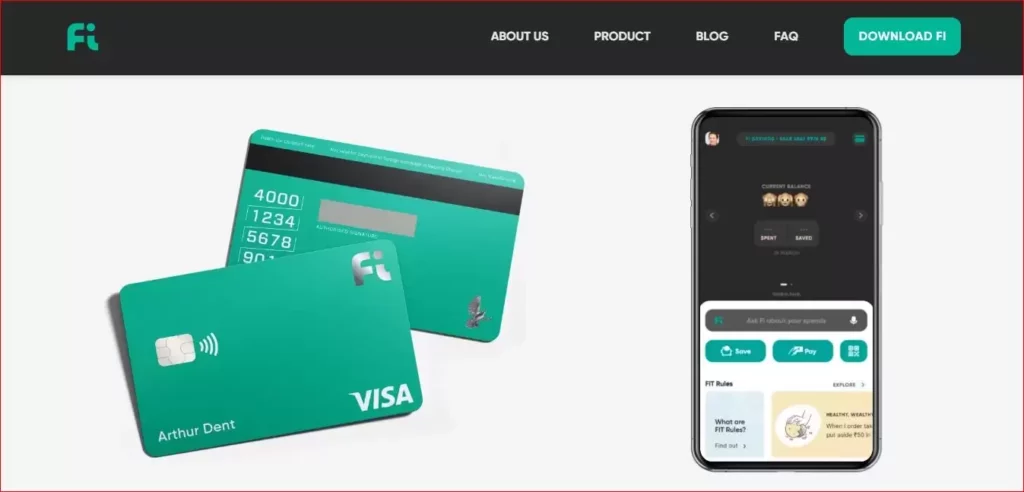Bank accounts are the spine of our financial lives, offering comfort, security, and a host of services in credit card app. But underneath the surface of these apparently direct financial products, covered-up expenses can lurk.
Understanding and revealing these expenses is fundamental to managing your funds successfully. In this article, we’ll dig into the world of credit card in bank accounts, shedding light on what they are, where to discover them, and how to maintain a strategic distance from falling casualty to these regularly inconspicuous charges.

1. Account Maintenance Fees
What: A few banks charge a monthly support charge for keeping your account open. These expenses can add up over time.
Where to Find: Review your bank’s fee schedule or account terms and conditions.
Avoidance: Many banks waive this fee if you maintain a minimum balance or meet other criteria, like having direct deposits.
2. ATM Usage Fees
What: Utilizing an ATM outside of your bank’s branches can result in costs for both your bank and the ATM owner.
Where to Locate: Check your bank’s location for a list of in-network ATMs.
Avoidance: Adhere to in-network ATMs or opt for cashback at point-of-sale exchanges on credit card online to maintain a strategic distance from ATM fees.
3. Overdraft Fees
What: Overdrafting your account or spending more money than you have can result in hefty overdraft fees.
Where to Find: Overdraft fees are usually listed in your account terms.
Avoidance: Monitor your account balance regularly, set up account alerts, and consider overdraft protection options.
4. Wire Transfer Fees
What: Sending or receiving money via wire transfers can incur significant fees.
Where to Find: Check your bank’s fee schedule for wire transfer charges.
Avoidance: Explore alternatives like online money transfer services, which may offer lower fees.
5. Paper Statement Fees
What: Some banks charge for paper statements instead of electronic ones.
Where to Find: Review your account terms or statement preferences.
Avoidance: Opt for electronic statements to avoid these unnecessary charges.
6. Stop Payment Fees
What: Requesting a stop payment on a check may come with a fee.
Where to Find: Check your bank’s fee schedule or inquire with a bank representative.
Avoidance: Be cautious when issuing checks, and consider other payment methods when possible.
7. Inactivity Fees
What: Rarely using your account could lead to inactivity fees.
Where to Find: Look for this fee in your account terms.
Avoidance: Make occasional transactions or close unused accounts to prevent inactivity fees.
8. Account Closure Fees
What: Closing an account too soon after opening it may result in closure fees.
Where to Find: Review your bank’s account closure policies.
Avoidance: Ensure you understand the terms and conditions before opening an account and keep it open for the required duration.
9. Foreign Transaction Fees
What: Making transactions in a foreign currency can trigger additional fees.
Where to Find: Check your bank’s fee schedule, often listed under international services.
Avoidance: Use credit cards or bank accounts designed for international travel to minimize these fees.
10. Transfer or Transaction Limit Fees
What: Some accounts impose restrictions on the number of transfers or transactions you can make within a given period.
Where to Find: Review account terms for limitations and associated fees.
Avoidance: Choose an account type in credit card apply app that aligns with your transaction needs.
11. Replacement Card Fees
What: Requesting a replacement debit or credit card may result in a fee.
Where to Find: Consult your bank’s fee schedule.
Avoidance: Take care of your card to minimize the need for replacements.
12. In-Person Teller Fees
What: Some banks charge fees for using in-branch teller services.
Where to Find: These fees are often outlined in your bank’s fee schedule.
Avoidance: Utilize online or ATM banking or apply for credit card for routine transactions to bypass these charges.
Conclusion
By staying informed and proactive, you can navigate the financial landscape with online credit card, ensuring that hidden fees don’t drain your resources and hinder your financial goals.